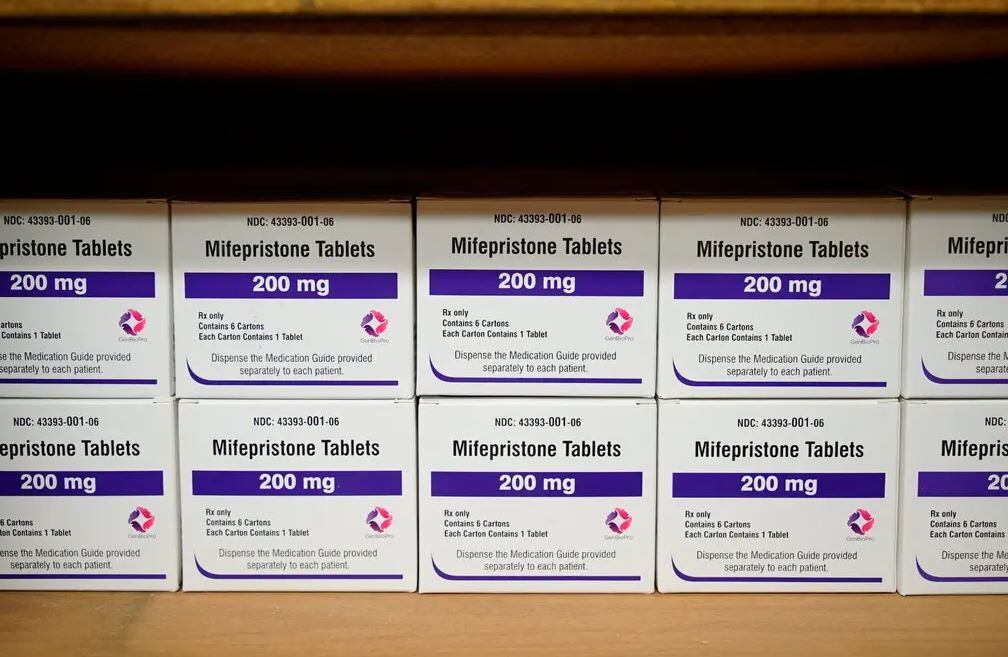In the United States, retail pharmacies, from neighbourhood drugstores to big chains like CVS and Walgreens, will be permitted to sell abortion pills for the first time on Tuesday, per a change in FDA regulations. The measure might greatly increase access to medicated abortions.
Until, mifepristone, the first tablet in the two-drug abortion medicine regimen, could only be administered by a few mail-order pharmacies or by physicians or clinics with specific certification. Under the new F.D.A. regulations, patients will still require a prescription from a licenced health care professional, but any pharmacy that agrees to accept those prescriptions and adheres to certain other criteria will be able to distribute the tablets in-store and through mail.
As a result of the Supreme Court’s decision last year removing the legal right to abortion, abortion pills, which are already used in more than half of pregnancy terminations in the United States, have become even more in demand. With more and more conservative jurisdictions outlawing or severely regulating abortion, the pills have been the subject of political and legal conflicts, which may affect a pharmacy’s choice over whether or not to distribute the prescription.
However, the F.D.A. amended its website to reflect the ruling and included a series of frequently asked questions and answers. Danco Laboratories and GenBioPro, the two manufacturers of the tablet, issued comments indicating that the government had notified them of the move.
Since its approval in 2000, mifepristone has been subject to a number of limitations. This measure is the most recent step made by the federal government to increase access to abortion pills by removing some of these restrictions.
The F.D.A. announced in December 2021 that it would no longer require patients to obtain mifepristone from a health care provider in person, paving the way for telemedicine abortion services that conduct medical consultations with patients via video, phone, or online questionnaires and then arrange for them to receive the prescribed pills by mail.
Mifepristone, which blocks a hormone necessary for pregnancy development, is approved by the F.D.A. for use in the first 10 weeks of pregnancy; however, many clinics and telemedicine providers have begun offering it up to 12 or 13 weeks into pregnancy, a move that is legal because there is scientific evidence that the pills are safe and effective at that point.
Misoprostol, the second medicine in the regimen, has never been as strictly regulated as mifepristone and is used to treat several medical disorders; it is readily available at pharmacies with a standard prescription. Misoprostol is administered between 24 and 48 hours after mifepristone to induce contractions that evacuate pregnancy tissue.
The measures for pharmacies to get approved to administer mifepristone are not complex, but they do include administrative requirements that go beyond the method pharmacies use for the vast majority of other drugs, such as assigning a staff to guarantee compliance. Due to the time and money needed by these measures, some pharmacies may not deem it beneficial to sell a drug that a tiny fraction of consumers may really use.
Abortion pills may represent a minor portion of a pharmacy’s revenue, but they may have a significant influence on its reputation. A pharmacy’s choice is also likely to be influenced by considerations of public opinion and the highly politicised political climate.
In over half of the states, abortion prohibitions or restrictions would make it illegal or very difficult for pharmacists to offer abortion pills.
In jurisdictions where abortion remains legal, pharmacists may confront consumer demand for the medicine as well as public pressure from supporters for abortion rights and health care practitioners. National chains might choose to provide the drug in certain states but not in stores located in restricted states.
The responses of proponents on both sides of the abortion issue mirrored the nation’s profound divides.
The president of Susan B. Anthony Pro-life America, Marjorie Dannenfelser, said, “The Biden administration has once again shown that it prioritises abortion industry profits above women’s safety and the lives of unborn children.” “Abortion advocates want to convert every post office and drugstore into abortion clinics, and the Biden FDA is on board.”
By enabling brick-and-mortar pharmacies to deliver medication abortion treatment, the F.D.A. is recognising medication abortion as the safe, effective, and time-sensitive care that it is, according to the head of the Expanding Medication Abortion Access initiative, Kirsten Moore.
Currently, Mifepristone is exclusively licenced for abortion. However, it is also used to treat certain miscarriages, and pharmacists may face pressure to administer it for that reason as well. Dozens of organisations, including the American College of Obstetricians and Gynecologists and the American Medical Association, have petitioned the F.D.A. to make it simpler for mifepristone to be used to induce miscarriages.
An official with Danco, which for years was the only manufacturer of the medication marketed under the brand name Mifeprex, stated that the company anticipated that smaller independent pharmacies would be the first to dispense the drug and that larger chains would take longer, in part due to the logistics involved in meeting the requirements.
The official, who spoke on condition of anonymity due to the company’s concerns about threats from abortion opponents, stated that implementing the companies’ requirement that pharmacies keep the names of health providers who prescribe mifepristone confidential would be a logistically complex step for large chains. A chain like CVS, for example, would be unable to post a doctor’s name in a companywide database and would be required to limit this information to the shop that fills that doctor’s prescriptions, according to a Danco representative.

